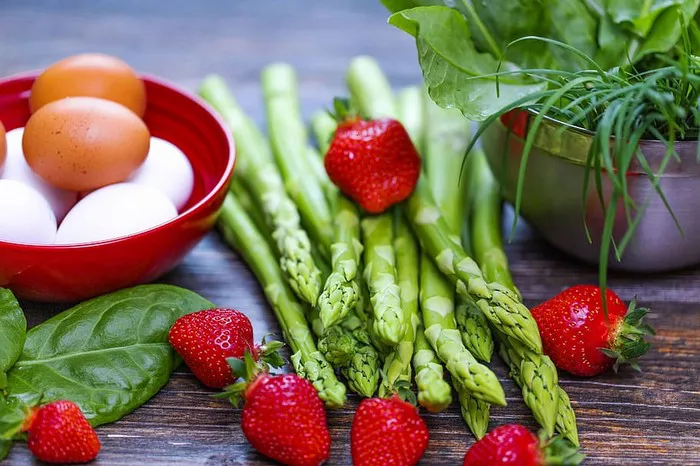Breakfast is often hailed as the most important meal of the day, and for good reason. It kickstarts our metabolism, provides the energy needed to face the morning’s challenges, and helps set the tone for our overall dietary choices throughout the day. A healthy and filling breakfast is not only about satisfying immediate hunger but also about fueling our bodies with essential nutrients that will keep us fueled, focused, and satisfied until lunchtime. In this extensive essay, we’ll explore what constitutes a healthy and filling breakfast, from understanding the key components like macronutrients and micronutrients, to exploring various types of breakfast options, tips for preparation, how it can be customized for different dietary needs and preferences, the role of breakfast in weight management and overall health, and even ideas for making breakfast an enjoyable and sustainable part of our daily routine.
The Importance of a Healthy and Filling Breakfast
Kickstarting the Metabolism: When we wake up in the morning, our bodies have been in a fasting state for several hours. Having a healthy breakfast signals to our metabolism that it’s time to start working again. The process of digesting and metabolizing the nutrients in breakfast helps to increase our metabolic rate, which means our bodies burn calories more efficiently throughout the day. For example, when we consume foods rich in complex carbohydrates, proteins, and healthy fats, our body has to break down these macronutrients through various enzymatic processes. This requires energy, and as a result, our metabolism gets a boost. Studies have shown that people who regularly eat breakfast tend to have a more active metabolism compared to those who skip it, which can contribute to better weight management and overall energy levels.
Providing Energy for the Morning: The morning is typically filled with various activities, whether it’s going to work, attending school, or engaging in physical exercise. A filling breakfast supplies the necessary energy to power through these tasks. Carbohydrates are the body’s primary energy source, and consuming them in the form of whole grains, fruits, or vegetables at breakfast provides glucose that our cells can use for fuel. Proteins also play a crucial role as they are broken down into amino acids, which can be used for energy when needed and also help in maintaining muscle mass and function. Additionally, healthy fats provide a slow and steady release of energy, keeping us satiated and preventing that mid-morning energy slump. For instance, a breakfast that includes a combination of oatmeal (a complex carbohydrate), nuts (a source of healthy fats), and Greek yogurt (rich in protein) can provide a balanced and sustained energy supply to keep us going until lunch.
Macronutrients
Proteins: Proteins are essential for building and repairing tissues in our body, including muscles, bones, and skin. They also play a key role in maintaining a feeling of fullness, as they take longer to digest compared to carbohydrates. Good sources of protein for breakfast include eggs, which are a complete protein source with about 6 grams of protein per large egg. Greek yogurt is another excellent option, with around 15 to 20 grams of protein per 6-ounce container, depending on the brand. Lean meats like turkey or chicken can be incorporated into breakfast sandwiches or wraps. Plant-based proteins such as beans (for example, a half-cup of cooked black beans contains about 7 grams of protein), nuts (almonds have about 6 grams of protein per ounce), and seeds (chia seeds have about 4 grams of protein per ounce when soaked) are also great choices for those following a vegetarian or vegan diet.
Carbohydrates: Carbohydrates are the body’s main energy provider. However, it’s important to distinguish between simple and complex carbohydrates. Simple carbohydrates, like those found in refined sugars and white bread, are quickly digested and can cause a spike in blood sugar levels followed by a crash, leaving us feeling hungry again soon after eating. On the other hand, complex carbohydrates take longer to break down and provide a more sustained release of energy. Examples of complex carbohydrates for breakfast include whole wheat bread, which has more fiber and nutrients compared to white bread. A slice of whole wheat bread can contain around 12 grams of carbohydrates and 2 grams of fiber. Oats are another popular choice; a half-cup of dry oats has about 27 grams of carbohydrates and 4 grams of fiber. Fruits like berries, apples, and bananas are also sources of carbohydrates, along with important vitamins, minerals, and fiber. For instance, a cup of strawberries contains about 11 grams of carbohydrates and is rich in vitamin C and antioxidants.
Fats: Fats are often misunderstood, but they are an important part of a healthy breakfast when consumed in the right amounts and from the right sources. Healthy fats, such as monounsaturated and polyunsaturated fats, can help improve heart health, increase satiety, and enhance the flavor and texture of our food. Avocado is a great source of monounsaturated fat; half an avocado provides around 10 grams of healthy fats. Nuts and seeds, as mentioned earlier, also contain healthy fats along with protein. Olive oil can be used in cooking or as a dressing for breakfast items like a bowl of oatmeal or a salad. Saturated fats from sources like full-fat dairy products and fatty cuts of meat should be consumed in moderation, while trans fats, which are often found in processed and fried foods, should be avoided as they can increase the risk of heart disease.
Traditional Breakfast Dishes with a Nutritious Twist
Oatmeal: Oatmeal is a classic breakfast choice that can be made in numerous ways to make it both healthy and filling. Instead of using pre-packaged flavored oatmeal with added sugars, start with plain oats and add your own toppings. You can cook it with water or a combination of water and milk (dairy or plant-based) for added creaminess and nutrition. Top it with fresh berries like blueberries or raspberries for a burst of flavor and antioxidants, along with nuts such as almonds or walnuts for healthy fats and protein. A sprinkle of cinnamon can also enhance the flavor without adding extra calories. This combination of complex carbohydrates from the oats, healthy fats from the nuts, and the vitamins and fiber from the berries makes for a well-rounded and satisfying breakfast.
Egg Dishes: Eggs can be prepared in many delicious and nutritious ways. A simple scrambled egg with spinach and tomatoes is a great option. Spinach adds vitamins like A, C, and K, as well as iron and fiber, while tomatoes are rich in vitamin C and lycopene. You can also make an omelet with a variety of fillings like mushrooms, onions, and cheese. If you’re watching your calorie intake, use low-fat cheese or a small amount of a flavorful cheese like feta. Another idea is a breakfast sandwich with a whole wheat English muffin, a fried or scrambled egg, and a slice of lean turkey or ham. This provides a good balance of protein, carbohydrates, and fats to keep you fueled.
Whole Wheat Pancakes or Waffles: When making pancakes or waffles, opt for whole wheat flour instead of refined white flour. Whole wheat flour contains more fiber and nutrients, which will help keep you full longer. You can add mashed bananas or applesauce to the batter for natural sweetness and moisture instead of using a lot of sugar. Serve them with a dollop of Greek yogurt and a drizzle of maple syrup (in moderation) or some fresh fruit slices. This way, you get the enjoyment of a classic breakfast treat while still maintaining a healthy profile.
Smoothies
Protein-Packed Smoothies: Smoothies are a convenient and customizable option for breakfast. For a protein-rich smoothie, start with a base of a liquid like unsweetened almond milk or low-fat milk. Add a scoop of protein powder, which can be whey, casein, or plant-based like pea or hemp protein, depending on your dietary preferences. Then include fruits like a banana for creaminess and additional carbohydrates, along with berries for flavor and antioxidants. You can also throw in a tablespoon of nut butter, such as peanut or almond butter, for healthy fats and extra flavor. This combination of ingredients provides a quick and easy way to get a balanced breakfast on the go, especially for those busy mornings when you don’t have time to sit down and eat a full meal.
Green Smoothies: Green smoothies are a great way to incorporate more vegetables into your breakfast. Begin with a base of spinach or kale, which are packed with vitamins, minerals, and fiber. Add a fruit like an apple or a pear to sweeten it up and improve the taste. You can also include a source of healthy fats like avocado or a small amount of chia seeds. Blend it all together with some water or a plant-based milk until smooth. Green smoothies are not only nutritious but also filling, and they can give you a boost of energy to start your day while getting in a good dose of greens early on.
Conclusion
In summary, a healthy and filling breakfast should be a balanced meal that provides a combination of protein, healthy fats, fiber, and essential vitamins and minerals. This meal sets the tone for the day, providing the body with the necessary energy and nutrients to function optimally.
Related Topics:

























